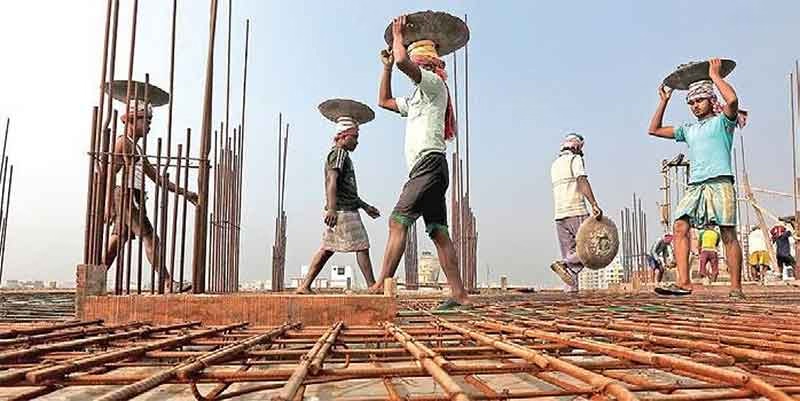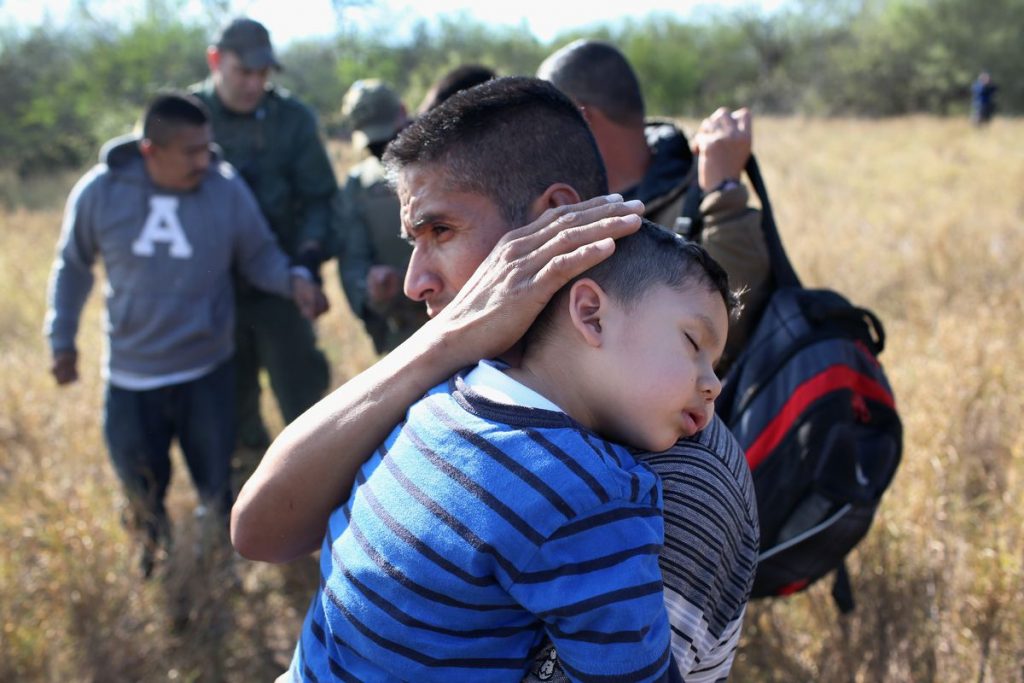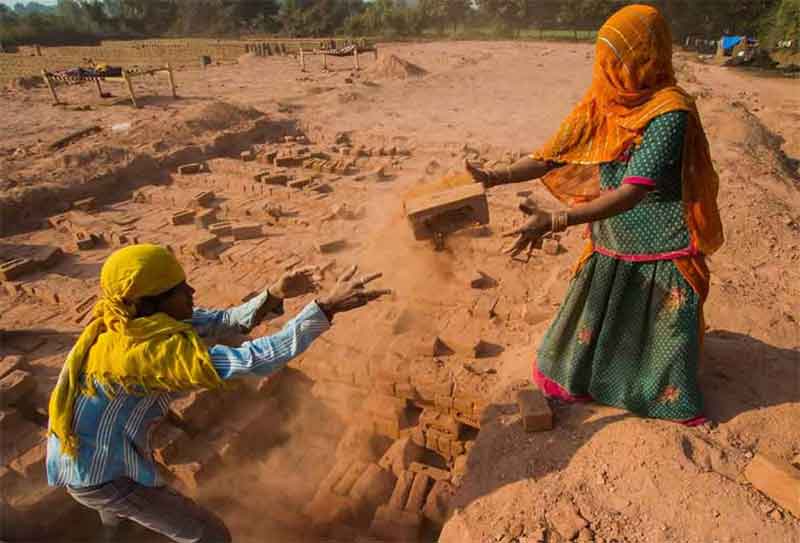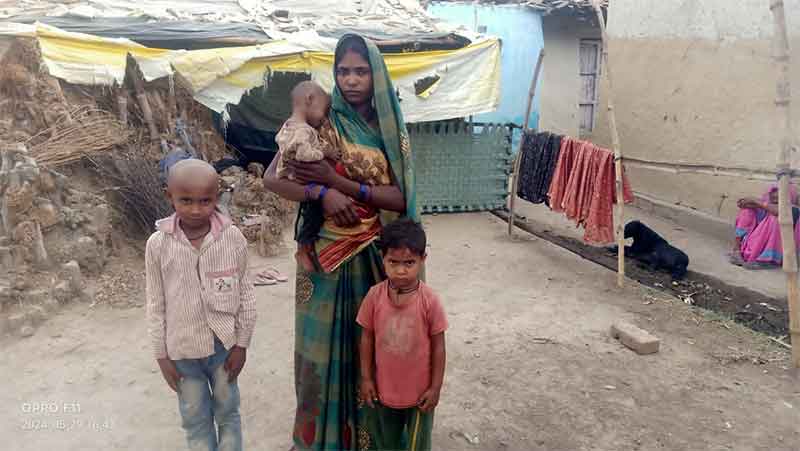
On an extremely hot afternoon of May 22 people saw a pathetic scene near Gwalior railway station. A woman with three small children was standing near a rickshaw and weeping loudly. On the rickshaw was spread the body of a very weak man who appeared to be dead.
A number of persons gathered around her and as it was confirmed that there was no trace of life left in the body on the rickshaw, the woman cried out even louder and seeing her weeping the children also started crying. Inquiries revealed that the dead body was that of Om Prakash, a migrant brick kiln worker from Banda district who was the husband of this woman Premkali. He had fallen seriously ill while working in the kiln. When he did not recover for several days and when his condition deteriorated on this day, the brick kiln owners asked him to leave the kiln as they did not want him to die at the worksite.
Premkali did not have anyone to help her in this difficult situation, but she showed a lot of courage and determination in somehow arranging a rickshaw to reach Gwalior railway station. She was completely helpless and without any funds to arrange to take the body of her husband to their village.
It was at this stage that the station master and a few police officials showed a lot of kindness. They consoled her and arranged an ambulance to take the body to the village and also gave a little cash to Premkali.
About two weeks later this writer visited the dalit hamlet of this village—Mohatra village of Naraini block– where Premkali lives now. This is a village inhabited predominantly by dalits. They are either entirely landless or else have very small plots of land. There are very few livelihood options in the village. These days even when villagers get some daily wage work, the extremely hot weather makes them extremely weak and exhausted. NREGA work or work under rural employment scheme is very rare. It is in these conditions that they accept the offer of a lump sum payment from labour contractors and leave for work in brick kilns in various places.
Premkali says that last October her husband accepted an advance payment of Rs. 5000 and then left for Gwalior with her and their three children.
She says that she and her husband toiled day and night in the kiln. Living conditions were poor.
According to information provided by various workers, the going rate is Rs. 650 for 1000 bricks and it is expected that by working day and night a couple can earn around Rs. 1000 in a day, but the actual payment is made after deducting advances given for food, medicine, payment before arrival etc. Even after providing for all this, Premkali should have received a significant sum of money at the time of departure but in fact she was told that as the accounts show a minus payment, it is she and her husband who have to make a payment before leaving the kiln. So when Om Prakash was ill a telephone message reached his mother that they have to arrange to send a payment to the kiln owner or manager and only then her son can return. So she went around trying to collect this payment for sending but the money could not be collected due to the precarious condition of various neighbours as well.
So when Premkali started from the brick kiln with her husband close to death and three small children, she did not have any money worth the name with her.
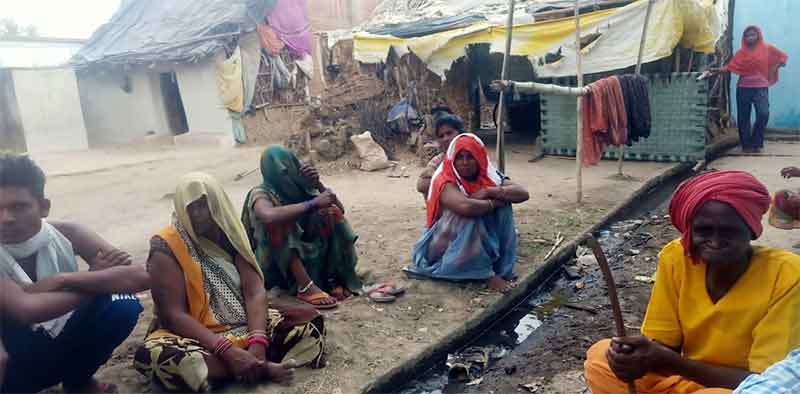
One close relative had earlier lost his life soon after returning from a brick kiln. Lav-kush, brother of Om Prakash, had been going to a brick kiln for several years but then he became a victim of tuberculosis disease, he says. He has a strong feeling that this disease is related to his work. This may well be an occupational disease with symptoms closer to those of TB.
People here say that among the dalit households of this village a majority go to brick kilns and in some neighbouring villages like Kairi and Jwahra the percentage may be even higher. The entire life of the workers migrating to brick kilns becomes an unending agony of going on making bricks in all their waking hours.
Subscribe to Our Newsletter
Get the latest CounterCurrents updates delivered straight to your inbox.
Meanwhile the prospects ahead for Premkali are very grim. She has hardly any livelihood support but has to bring up three children. All the three children are very weak and suffering from very poor nutrition conditions. The labour contractor has paid her a small amount asking her not to make any complaint and also said that if she does not make any complaint then he may give some more money her, but even if he does, all this will be very inadequate for the family’s needs.
A voluntary organization Vidya Dham Samiti is also helping the family within its limited capacity. It has also taken up other such cases of extreme injustice. In one such case a brick kiln worker of Neebhi village was not paid his dues worth over Rs. 200,000 and when all his efforts to receive these dues failed, he committed suicide.
Such victims of injustice should receive prompt help from the labour department so that justice for them can be secured before any extreme tragedy takes place.
Bharat Dogra is Honorary Convener, Campaign to Save Earth Now. His recent books include Protecting Earth for Children, When the Two Streams Met and Man over Machine.

